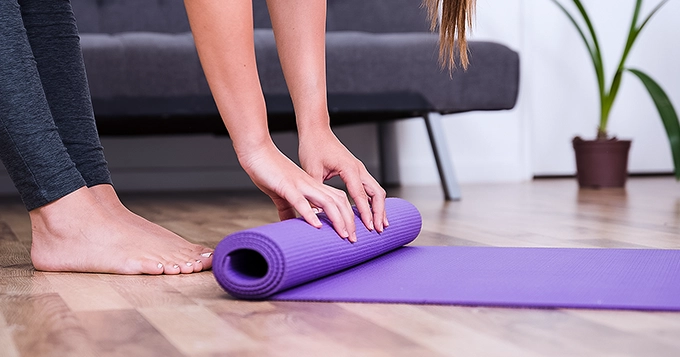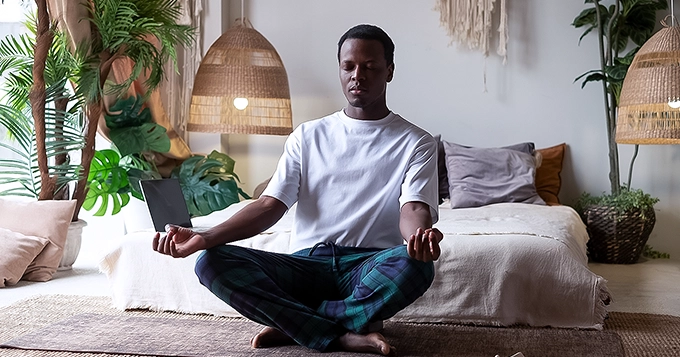How you start your mornings can significantly influence your mindset, productivity, and overall well-being. One powerful way to kickstart your day on a positive note is through guided morning meditation. Whether new to meditation or looking to enhance your existing practice, this guide will walk you through some of the best morning meditation practices to help you start your day with clarity, calmness, and focus.
The Benefits of Guided Morning Meditation
Morning meditation offers numerous benefits for both mind and body, enhancing your well-being in several ways:
- Clarity and Focus: Starting your day with morning mindfulness helps clear mental clutter and sharpen your focus, allowing you to approach your tasks with greater concentration and clarity.
- Stress Reduction: Meditation promotes relaxation and activates the body’s relaxation response, helping to reduce stress levels and improve resilience to daily challenges.
- Emotional Balance: Morning meditation cultivates emotional awareness and regulation, enabling you to navigate difficult emotions with greater ease and equanimity throughout the day.
- Increased Energy: By promoting deep relaxation and rejuvenation, morning meditation can boost energy levels and enhance vitality, setting a positive tone for the day ahead.
- Enhanced Creativity: Engaging in meditation first thing in the morning can stimulate creativity and intuition, unlocking new insights and ideas for problem-solving and innovation.
How to Create Your Ultimate Morning Routine
- Set an Intention
Begin your morning meditation by setting an intention for the day. This could involve developing an attitude of gratitude, promoting inner tranquility, or increasing productivity. Setting an intention provides a sense of direction and purpose to your practice, guiding your thoughts and actions throughout the day.
- Wear Comfortable Attire
It’s a good idea to wear comfy, airy clothes. If you’re doing morning meditation, your pajamas are perfect, and you don’t need to change.
- Keep Your Phone Away From You
Ever had those mornings when you wake up, turn off the alarm, and then get lost for what feels like forever scrolling through your phone? It can totally throw off your morning meditation vibe.
To dodge this, try putting your phone on airplane mode before bed to avoid those tempting notifications. Or, if you don’t need it for the alarm, switch it off and keep it out of arm’s reach. Trust me, having your phone out of sight will make it easier to focus on a peaceful morning meditation and set the right tone for your day.
- Find a Quiet Place
Choose a quiet, peaceful space where you won’t be bothered or disturbed during meditation. You could do morning meditation in bed, in a cozy nook in your living room, or even outdoors in nature if the weather permits. Creating a serene environment free from distractions can help you dive deeper into your meditation.
- Find A Comfortable Position
Meditate lying down, sitting cross-legged, or sitting with your feet touching the ground.
- Set a Time Limit
Experienced Buddhists can meditate for 30 minutes to 2 hours or even longer. But for those who are new to meditation, this can be difficult. You might drift off to sleep or lose focus if you try to meditate for too long.
Rather than aiming for a 20-minute meditation right away, start small with just 2 minutes. Do this for 3 to 5 days, then increase to 5 minutes, then 10 minutes, gradually building up. Eventually, you’ll be able to handle a half-hour session without any trouble.
- Find Your Preferred Method Of Meditating
Explore different meditation techniques to find the one that resonates with you. Here are some options:
- Focused Meditation: Concentrate your attention on a single point of focus, such as your candle flame, breath, or a specific mantra. Focused meditation helps to calm the mind and improve concentration.
- Body Scanning: Bring awareness to each part of your body, from your toes to your head. Notice any sensations or tensions present in each area and allow them to disappear as you breathe.
- Gratitude Meditation: Reflect on things you’re grateful for in your life, expressing appreciation for the blessings, both big and small. Cultivating gratitude promotes a positive outlook and enhances overall well-being.
- Loving-Kindness Meditation: Extend feelings of love, compassion, and kindness towards yourself and others. Repeat phrases like “May I be happy and healthy,” or customize them to suit your intentions.
- Visualization: Envision a peaceful and tranquil scene in your mind’s eye, such as a serene beach or a lush forest. Immerse yourself in this imagined environment’s sights, sounds, and sensations.
- Mindfulness Meditation: Observe your thoughts, emotions, and sensations without judgment. Let them come and go without attachment. Mindfulness cultivates present-moment awareness and acceptance.
- Mantra Meditation: Repeat a sacred word, phrase, or affirmation silently or aloud, focusing your attention and intention on its meaning or vibration.
- Movement-Based Meditation: Engage in gentle movement practices such as yoga, tai chi, or walking meditation. Sync your movements with your breath to cultivate mindfulness and presence.
- Notice Your Body as You End Your Meditation
When you feel ready to end your meditation session, gently raise your eyes (if your eyes are closed, open them). Pause for a moment and tune in to any sounds around you. Pay attention to how your body is feeling right now. Acknowledge any emotions or thoughts that arise.
Is It Good to Meditate in the Morning?
While the ideal time to meditate may vary from person to person, many practitioners find that meditating early in the morning offers unique benefits. Morning meditation helps to establish a sense of calm, clarity, and intentionality from the outset. Additionally, meditating in the morning can be easier to incorporate into your routine before the demands and distractions of the day take hold.
Can Meditation Sharpen Your Attention?
Yes, meditation can indeed sharpen your attention upon waking up. Morning meditation helps to train and strengthen your attentional muscles, enabling you to cultivate greater focus, clarity, and presence throughout the day. By practicing mindfulness and awareness early in the morning, you can enhance your ability to stay present and attentive to the tasks and activities that lie ahead.
What to Do with Thoughts and Ideas that Arise During Morning Meditation?
It’s common for important thoughts and ideas to arise during meditation, especially when practicing in the morning when the mind is fresh and clear.
Instead of trying to push these thoughts away or suppress them, acknowledge them with gentle awareness and then gently redirect your attention back to your chosen point of focus, whether it’s a mantra, your breath, or the sensations in your body. If a particularly important insight arises, you can make a mental note of it and explore it further after your meditation session is complete.
I’m Not Finding Relaxation or Peace When Meditating. What Should I Do?
If you’re not finding relaxation or peace during your meditation practice, it’s essential to approach it with patience, compassion, and curiosity. Remember that meditation is a practice. It’s only natural for the mind to wander or for discomfort to arise, especially if you’re just starting out. Instead of striving for a specific outcome, focus on cultivating a non-judgmental awareness of your present-moment experience, whatever it may be.
Experiment with different meditation styles or techniques and find one that resonates with you, and remember that consistency and perseverance are key to deepening your practice over time.








